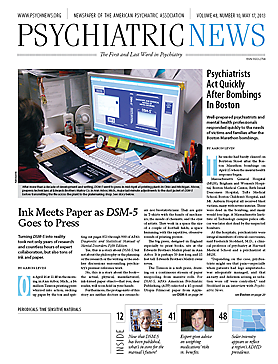For women of childbearing potential who must use valproate as a treatment for epilepsy or neuropsychological disorders, the April 24 JAMA brought more bad news about a drug already associated with risks for congenital malformations and delayed cognitive development resulting from in-utero exposure. It’s also associated with significant risk of autism spectrum disorder (ASD) and childhood autism, even after adjusting for the effects of maternal epilepsy.
Jakob Christensen, Ph.D., of Aarhus University Hospital in Denmark and colleagues performed a population-based study of all children born alive in Denmark from 1996 to 2006, using national registers to identify children exposed to valproate during pregnancy and diagnosed with ASD, including Asperger syndrome, atypical autism, and other or unspecified pervasive developmental disorders.
The children were followed up from birth until the day of diagnosis, death, emigration, or December 31, 2010, whichever came first.
Out of the 655,615 children included in the study, the researchers identified 2,644 who were exposed to antiepileptic drugs during pregnancy, including 508 exposed to valproate. They found that use of valproate during pregnancy was associated with an absolute risk of 4.42 percent for ASD and an absolute risk of 2.50 percent for childhood autism.
“In this population-based cohort study, children of women who used valproate during pregnancy had a higher risk of ASD and childhood autism compared with children of women who did not use valproate. Their risks were also higher than those for children of women who were previous users of valproate but who stopped before their pregnancy,” Christensen and colleagues said. They also acknowledged that—as serious as even a moderate increase in risk of these disorders can be—their findings must be balanced against the treatment benefits for women who require valproate for epilepsy control.
Kimford Meador, M.D., and David Loring, Ph.D., both professors of neurology and pediatrics at Emory University in Atlanta, expressed concern in an accompanying editorial that women of childbearing potential are not being adequately advised of the risks of valproate before it is prescribed.
“Despite the established risks of fetal valproate exposure, valproate continues to be a common treatment in women of childbearing age,” they noted. “Valproate is an effective drug, but it appears that it is being prescribed for women of child-bearing potential at a rate that does not fully consider the ratio of benefits to risks. This raises concern as to whether these women are receiving adequate information for informed consent based on a full understanding of the treatment risks and alternative therapies.”
They recommended use of alternative medications. “If no alternative effective medications can be found, the lowest effective dose of valproate should be used. Because approximately half of the pregnancies in the United States are unplanned, delaying discussions of treatment risks until a pregnancy is considered will leave a substantial number of children at unnecessary risk,” they stated.
That’s sound advice when the drug is being prescribed for neuropsychological disorders as well. “Valproate is generally regarded as a bad drug to take while pregnant,” said Gail Robinson, M.D., director of the Women’s Mental Health Program of the University Health Network of Toronto and a professor of psychiatry at the University of Toronto, who commented on the study for Psychiatric News.
Robinson noted that valproate is also associated with increased risk for atrial septal defect, hypospadias, cleft palate, craniosynostosis, and spina bifida at rates that far outweigh the risks for ASD. “For all of these reasons, psychiatrists who specialize in peripartum mental health disorders try to avoid its use during pregnancy….Whether or not it increases the risk of autism, where possible it should be eliminated during pregnancy and a safer drug substituted.”
The study was supported by grants from the European Research Council. Christensen receives research support from the Danish Epilepsy Association. ■

